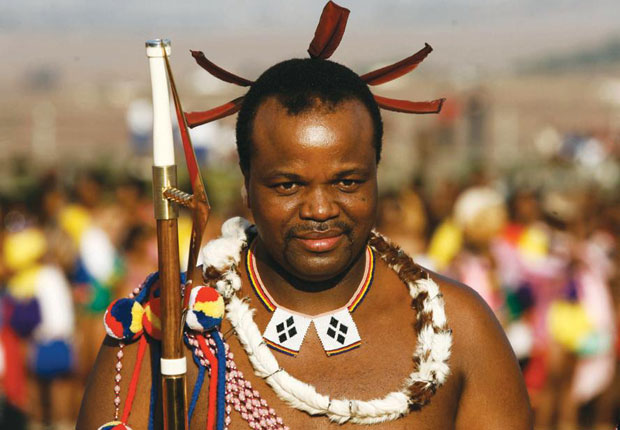Swaziland: The Intersection of Tradition and Globalization in Africa’s Last Absolute Monarchy
Swaziland, the last absolute monarchy in Africa, is a sovereign state nestled within South Africa and bordering Mozambique. Income inequality and unemployment are incredibly frequent in Swaziland, and the country has the highest prevalence of HIV in the world.
King Mswati, who has been in power for almost thirty years, serves as the singular executive authority, despite the presence of a Prime Minister, a senate, and a house of assembly. Swaziland’s constitution allows for freedom of expression, however political parties are banned, and speaking out against the King is viewed as treason under the law. Though there are elections for Prime Minister and members of parliament, it is noted in Swaziland’s constitution that the role of the king is hereditary, and that he is immune from taxation and legal proceedings.
Unlike other monarchies that have continued into the twenty-first century, King Mswati is not merely a figurehead; in fact, the king holds an immense amount of power and has made sure that there are laws in place to protect his supreme status. The regulations on terrorism in Swaziland make it so that any political or social actions taken against the monarchy are condemned as such, making it nearly impossible to deviate from the current state of political affairs. Much of the current political unrest stems from the traditions surrounding property rights in Swaziland, and the complexity of the Swazi identity in a global setting.
Although an absolute monarchy is at odds with democracy, there is the potential for certain kinds of political and social reform that would enable Swaziland to maintain many of its traditions. That being said, King Mswati does not show many signs of wanting to relinquish his supreme rule over the nation. The monarchy has released statements explicitly stating that they will resist democratic reforms suggested by the United States.
Many of the political protests taking place in Swaziland focus on basic rights for Swazi citizens, including property rights and the ability to have their voices heard more within the legislature. Though many of these requests seem reasonable, political protests are illegal under the Swazi constitution, and thus many protesters are jailed or exiled.
From a global governance perspective, Swaziland is in a particularly interesting position. On one hand, many outsiders see it as a human rights violation that Swazi citizens are legally unable to voice their opinions. However, from a position of cultural relativism, it can become much more complicated whether or not other countries have the right to step in. Swaziland depends almost solely on South Africa for most of its trade, making the potential for sanctions relatively easy. As of right now, South Africa has not made any movements towards protesting or speaking out against the Swazi government. Although there have only been threats of sanctions from the EU, the rapidly rising HIV rates and lack of access to health care for many Swazi citizens may be the tipping point that nudges international human rights organizations towards intervention.


